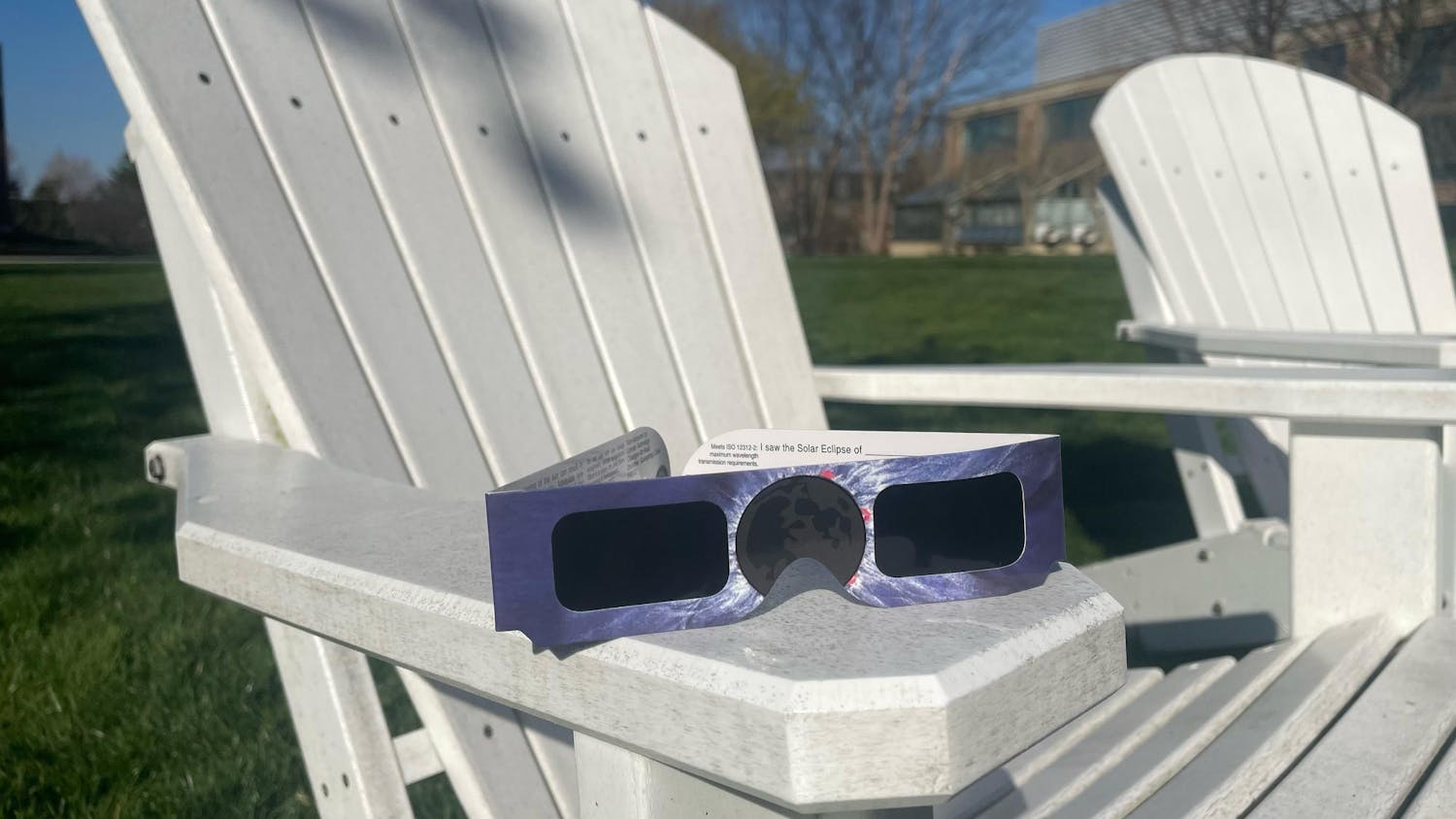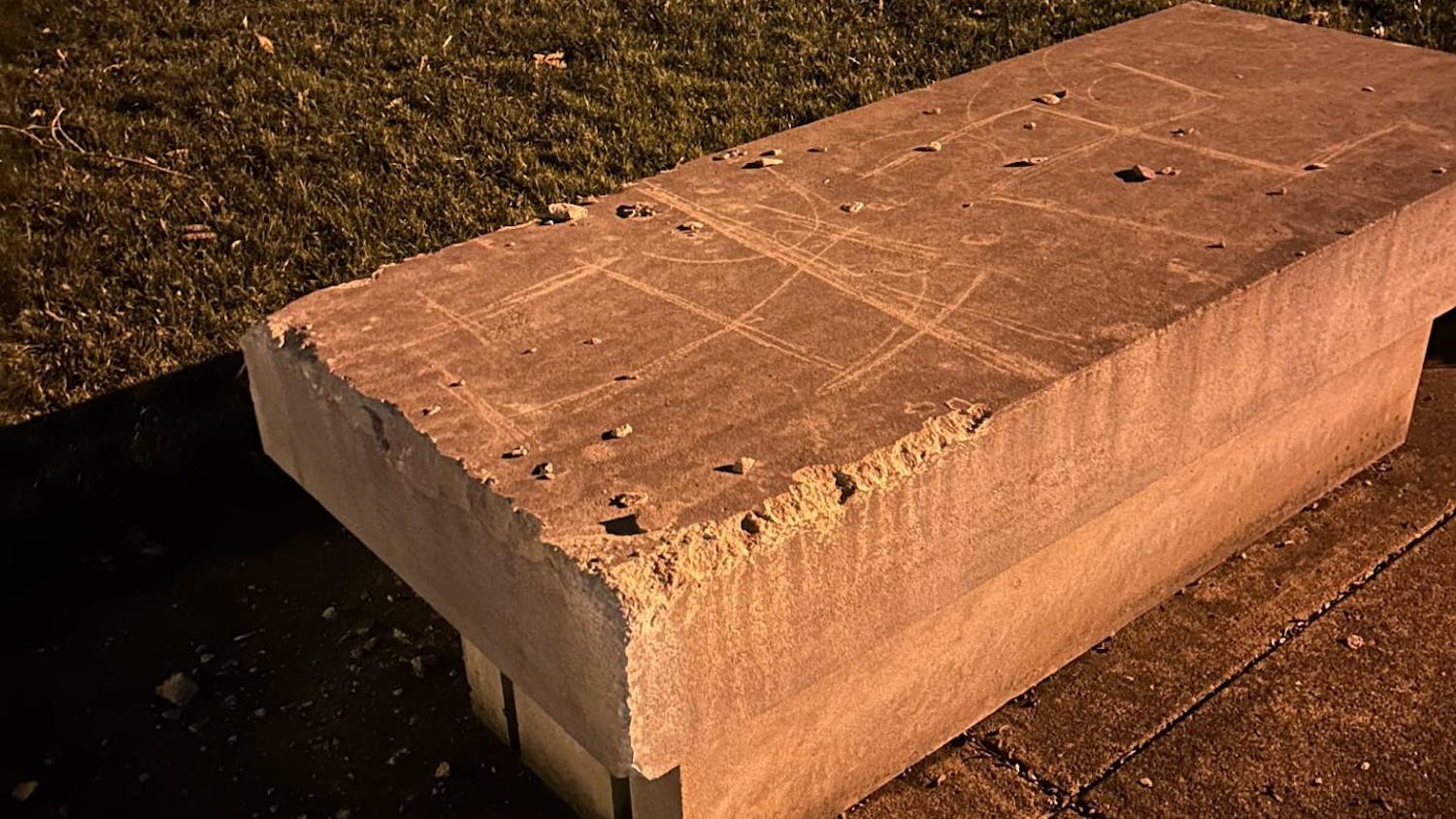University Senate delayed a vote on a mechanical engineering proposal, passed a student-led fossil fuel divestment policy and approved governance changes at its last official meeting of the year on April 6.
The mechanical engineering proposal was to introduce the second major to be proposed for the new Department of Engineering. The pro forma document for the proposal projects that total program revenue from tuition from incoming mechanical engineering students will total $1,498,000 by year five of the program.
The proposal was put on the agenda after multiple revisions in the Curriculum Committee, including a revision that reduced required credit hours to comply with the Ohio Department of Higher Education. Barbara Schaffner, dean of professional studies, stated that the proposal would make Otterbein the only competitor in the Central Ohio area to Ohio State’s "highly selective" mechanical engineering program.
The proposal faced questioning from faculty at the meeting. Physics professor Nathaniel Tagg said the Physics Department was in support of engineering at Otterbein, however he cited concerns about required part-time faculty and equipment.
“I am deeply worried that if we don’t allocate enough resources to a program like this, it might fail, and that would be a disaster for Otterbein,” Tagg said.
Chemistry professor Robin Grote said that the required part-time faculty and class capacity may be a problem for her department while communication chair Denise Shively echoed Tagg's statements about resources allocated to the program.
Theater chair John Stefano said he thought the timing of the proposal was strange given the university’s efforts to cut the budget.
“I want to know the effect it’s going to have on other programs,” Stefano said, adding that the effect may not have been fully looked at in Curriculum Committee. “It appears to me, based on my history at Otterbein, that this is another one of those very good ideas that we have bought into without having considered all the implications.”
Stefano introduced a motion to table the proposal, which was passed 56-17. Senate must vote to remove the major proposal from the table if it is to be voted on again.
The Student Government Divestment Ad-Hoc Committee achieved its goal in proposing a policy that seeks to fully divest from fossil fuels “within five years.”
The committee was headed by Amelia Gramling, senior student trustee and women’s gender and sexuality studies major, and Clay Wichman, sophomore finance and sustainability studies major.
Kevin Svitana, professor in the Department of Biology and Earth Science and chair of the sustainability committee, wrote a Letter of Support in favor of the proposal in February.
Gramling and Wichman spoke to the assembly presenting the proposal as a financial recommendation as well as a moral one. They said they had identified other universities, such as the University of Dayton, with similar policies where tuition was either unaffected or positively affected.
“Divestment is simply just good business and better for our financial portfolio in the long run," Wichman said. "While fossil fuel investments may be initially profitable, there are some long-term costs associated with them,”
The divestment policy passed without the need of a vote count.
The Governance Standing Committee proposed and passed four revisions to University Senate bylaws, including a proposal that added language stating that committee meetings, with the exception of judicial level committees, are open to the campus community. A majority vote of committee membership under this revision can initiate a closed executive session.
During discussion of the open meetings addition, Shelley Payne, professor of allied health and chair of the curriculum committee, said that at a “spirited” discussion of open meetings with President Krendl, who was not in attendance at Senate, the idea was brought up that “chairs and committees need to recognize the impact of an open meeting, people feel disempowered because of things that might be attributed to them by name by someone attending the meeting."
Payne said that committees are closed in the sense that community members must ask for an invitation to come to the meeting.
Susan Millsap, parliamentarian, professor of communication and chair of the Governance Committee, responded by stating, “That’s not true actually, right now all committee meetings are open, this just puts it down so there’s not confusion about that. The Otterbein committee structure has always been an open structure,” adding that an open structure was intended when governance bylaws were rewritten.
The open meeting proposal passed without the need of a vote count.
At the conclusion of the meeting, Provost and Dean of Academic Affairs Miguel Martinez-Saenz informally called for the president to initiate a special session of Senate as there were items, many involving changes to the Department of Business, Accounting and Economics, remaining for a vote on the agenda.





